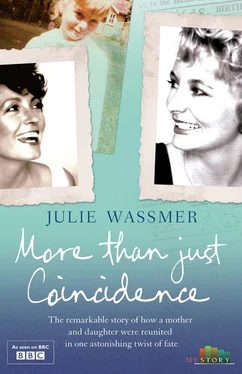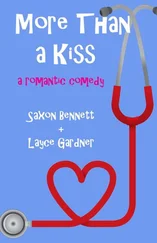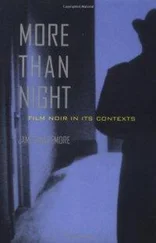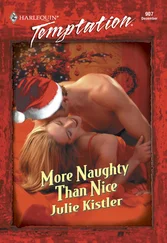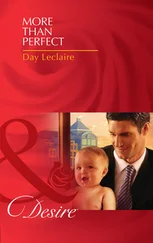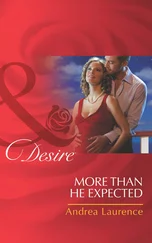Insolent to the last, I said nothing.
My silence was the final insult. ‘Go on. Get out of here and waste your life,’ she said. I turned for the door and as I grasped the handle, she added viciously: ‘You’ll probably be pregnant by the time you’re sixteen.’
I turned and looked at her, outraged. Perhaps she thought I’d been flirting with the market boys but I decided against putting her right. If university meant more of this, more blind kowtowing to outdated traditions and heavy-handed authority, I wanted nothing to do with it.
Soon a new interest began to eclipse my studies: pop music. I’d been a Beatles fan since the age of eleven, having screamed through their first two films— A Hard Day’s Night and, the following year, Help!— in the stalls of the Mile End Odeon. Now, as a teenager, I was going to real concerts with live acts. I was besotted by the Walker Bothers and Donovan. I was there when Jimi Hendrix accidentally set fire to his Afro while plucking his guitar strings with his teeth on stage at the Finsbury Park Astoria. I was suffering very badly from crushes on pop stars, probably because I had no access to real boys. Having spent five years at an all-girls’ school, I didn’t yet know a single boy of my own age. That omission, however, was about to be rectified.
In the summer of 1968 I was asked to be bridesmaid at a neighbour’s wedding. For weeks I was caught up in the preparations for the big day, going off to fittings for a white satin dress with pink bolero top. I learned how to stand with a bouquet in my hand and bought a demi-hairpiece—half a head of long, straight hair stuck on a black velvet band. No one suspected it wasn’t my own, or so I believed. All of a sudden I found myself mixing with young adults and involved in social activities that felt much more grown-up than mucking about with my schoolmates. The bride and groom were in their late teens and after their marriage would be renting the flat above the groom’s mother’s. Having friends a few years older than myself with their own flat seemed incredibly sophisticated.
At the wedding rehearsal I met the best man, a young friend of the groom. Martin was just eighteen, tall and lean with long legs like Clint Eastwood’s. He seemed just as shy around me as I was in his company, and we didn’t say much to each other then, but we continued to meet regularly at the newlyweds’ flat. We flirted, exchanging furtive glances across the room.
I was nearly sixteen and for some time Aunt Carrie had been asking me, ‘When are you going to find yourself a nice boyfriend?’ It was a question my parents had never once put to me. As far as they were concerned, boys were still off limits. ‘There’ll be plenty of time for all that when you’ve finished studying,’ my father would say. So I had no intention of admitting to them that I had my eye on somebody.
I hadn’t even gone on a date with Martin when he walked me home one night from our friends’ place and kissed me at the doorstep. Straight away I knew it was love.
After that first kiss Martin and I started ‘going out’ together. Actually, we didn’t go out so much as stay in. Mostly we’d sit in his living room or bedroom playing records. The music of the time said it all. ‘It’s your thing—do what you wanna do. I can’t tell you who to sock it to,’ as the Isley Brothers put it.
In the background Northern Ireland’s social and political issues, a constant source of debate in our Protestant-Catholic home, were simmering like a pressure cooker waiting to explode. In the spring of 1969 I was pleased to see twenty-one-year-old Bernadette Devlin—dubbed ‘Fidel Castro in a mini-skirt’ by some Protestants—become Britain’s youngest-ever woman MP when she was elected by Mid-Ulster on a ‘Unity’ ticket. But that summer the Battle of the Bogside would mark the start of the ‘Troubles’ and bring the British army to the streets of Northern Ireland. For my mother the matter was clear cut: she sided instinctively with the Catholic cause. My father, however, had a foot in both camps. The IRA were the rebels, and therefore deserving of his support, but in this instance it was his government they were rebelling against, which left him in a bit of a quandary. When it came to the personal versus the political, I was learning, things were not always as straightforward as they seemed.
His primary concern in those years, however, was still the fate of the Royal Mint. Matters had been brought to a head by the government’s decision to introduce decimal currency in 1971. The changeover would require millions of new coins to be struck, and in 1967 their proposal to build a new facility at Llantrisant in South Wales was made public. The idea was to gradually phase out production at Tower Hill and transfer the entire Royal Mint to Wales—a plan that my father strongly opposed on behalf of the colleagues he represented.
As the 1960s drew to a close my friends and I moved on from mini-skirts and tight boots to kaftans and sandals. I bought Indian bells to wear about my neck from a shop called Indiacraft in Tottenham Court Road and finally gave up on the straightening tongs: curls and frizz were fashionable now, and it was a relief to be able to leave my hair to do its own thing. I would wander around the Biba store in Kensington High Street, at that time an art-nouveau doll’s house filled with clothes, make-up and perfume. I badly wanted to be different and original but so did everyone else, which meant we all wandered around Biba and ended up looking very much the same.
When Martin managed to get tickets for us to see Arthur Brown, whose single ‘Fire’ had become an alternative hit, I wore black, accessorised by my demi-hairpiece and plenty of startling dark eye shadow—the appropriate style of dress, I felt, for witnessing Arthur erupting on to the stage in his signature flaming metal helmet. Everyone knew about the incident that had taken place the year before at the Windsor Jazz Festival when methanol fuel, accidentally poured over Arthur’s head, had caught fire. Luckily, two members of the audience had doused the flames with whatever was to hand, which happened to be beer. Now we all waited with bated breath to see if the experience would be repeated. We were disappointed.
Martin lived about a half a mile away from Lefevre Road. His parents were divorced and his Irish mother, Bridie, worked night shifts as a hospital receptionist. His flat was larger than ours so once she had left for the evening we had the space—and the freedom—to do things I couldn’t do at home, but it was all relatively innocent. Martin’s room was something to behold. The walls were lined with posters of Jimi Hendrix, T-Rex and Led Zeppelin, all bathed in the glow of a red light bulb. A stolen British Rail safety lamp sat in pride of place in a corner and on the ceiling were cutting-edge polystyrene tiles. We spent a long time looking up at them, smoking either designer cigarettes like Sobranie or Du Maurier or very weak joints that quite possibly contained henna rather than cannabis. We wouldn’t have known the difference.
With his lean build and delicate features, Martin was in every way the antithesis of my father. He wore his curly hair like Bob Dylan’s on the cover of the Blonde on Blonde album, and was generous with his meagre wages as an apprentice with the Gas Board, buying me jewellery and bottles of Aqua Manda perfume which made me smell like an orange. He had left school after taking his O-Levels and found gas-fitting incredibly boring. His parents’ divorce was hard for him to accept and when we visited his father one afternoon, I could tell, just by the way Martin looked at him, how much he missed having his dad in his life.
I began to see Martin most evenings and in time his flat came to feel more like home than mine. My parents didn’t approve of me going out so often, especially when I began staying out increasingly late. They wanted me to concentrate on my schoolwork. To my dad, education was everything. ‘You could work in a bank!’ he said enthusiastically, in an effort to inspire me. It was his idea of a respectable, steady job with prospects and a good pension but exactly how he envisaged it bringing fulfilment to him or to me I can’t imagine. His expectations of me were fierce but unfocused. My parents simply wanted a better life for me than the one they had, but while I was struggling to discover what I wanted for myself I felt constantly under pressure.
Читать дальше
